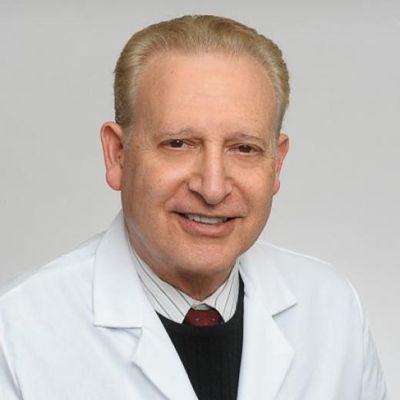Since 1988, interventional cardiologists have gathered annually to highlight major medical research breakthroughs and the latest evidence-based research in the field. Founded by Martin B. Leon, MD, Chief Innovation Officer and the Director of the Cardiovascular Data Science Center in the Division of Cardiology at NewYork-Presbyterian/Columbia, the Transcatheter Cardiovascular Therapeutics (TCT) conference is the Cardiovascular Research Foundation's (CRF) annual scientific symposium and the world's foremost educational forum specializing in interventional cardiovascular medicine.
NewYork-Presbyterian physicians have always maintained a strong presence at TCT, and this year several physicians had the opportunity to serve as program directors, including Dr. Leon, Ajay J. Kirtane, MD, Director of the Interventional Cardiovascular Care program at Columbia, and Sahil A. Parikh, MD, Director of Endovascular Services at Columbia. In addition to the program leads, other doctors from across the institution played key roles serving on the TCT program development committee, including:
- Rebecca Hahn, MD
- Susheel Kodali, MD
- Margaret McEntegart, MD, PhD
- Jeffrey W. Moses, MD
- Tamim Nazif, MD
- Sanjum S. Sethi, MD, MPH
- Robert J. Sommer, MD
In addition to the leadership roles, NewYork Presbyterian physicians recorded and presented five educational case demonstrations that were shown at the meeting and in addition, many NewYork-Presbyterian physicians presented pivotal research in the areas of coronary artery disease, structural heart disease, and endovascular intervention.
New research shows continued safety and efficacy of TAVR
Transcatheter aortic valve replacement (TAVR) continues to be successful treatment option and cardiologists and cardiac surgeons at NewYork-Presbyterian have been instrumental in the development and growth of this procedure for many years, helping create the initial device and playing key roles in clinical trials that have led to expanded usage.
At the conference, Dr. Leon presented findings from the five-year follow-up of the PARTNER 3 Trial. This randomized, multicenter trial sought to compare the safety and efficacy of transcatheter aortic valve replacement (TAVR) to surgical aortic valve replacement (SAVR) in treating aortic stenosis. This study is the longest clinical follow-up of TAVR patients, and results showed that TAVR continues to be a meaningful alternative to surgical therapy for low-risk severe, symptomatic aortic stenosis (AS) patients.
Of note, the study findings showed that, for TAVR, all-cause mortality was 10%, cardiovascular mortality was 5.5%, and stroke was 2.9% at five years. Rehospitalization rates for the TAVR group were less than 3% per year over five years. Additionally, atrial fibrillation and bleeding were less frequent in the TAVR group.
The findings for the PARTNER 3 Trial were published in the New England Journal of Medicine. Dr. Leon served as co-principal investigator for PARTNER 3; Drs. Kodali and Hahn were also senior investigators on the trial.
Resorbable scaffold has positive impact in limb ischemia patients and safety of drug-coated balloons confirmed
Another pivotal trial that was presented was the LIFE-BTK trial, in which Dr. Parikh is a senior investigator and author. LIFE-BTK is a multicenter, randomized controlled clinical trial designed to treat chronic limb threatening ischemia (CLTI) in people battling advanced stages of peripheral artery disease.
BTK is an everolimus-eluting, resorbable scaffold that is placed in the artery immediately after a balloon angioplasty, supporting and preventing the vessel from reclosing without the use of a permanent metallic implant. Once implanted, the scaffold releases a drug over a few months that promotes healing and keeps the artery open. The LIFE-BTK trial tested the safety and effectiveness of BTK and found that it reduces disease progression and improves outcomes compared to balloon angioplasty alone. The results from LIFE-BTK were published in the New England Journal of Medicine.
Dr. Parikh also presented key data confirming the safety of drug-coated balloons in interventional procedures in the lower extremities. This publication is the definitive publication allaying long-standing controversy regarding safety concerns of these devices and was simultaneously published in Lancet.
Ultrasound-based renal denervation demonstrates positive results
Dr. Kirtane presented six-month results from the RADIANCE trial, which is an ongoing study looking at treating hypertension through a minimally invasive ultrasound-based renal denervation procedure. This procedure can be an alternative for patients who can’t tolerate pills or don’t wish to take them.
Pooled data from the device’s three sham-controlled global clinical studies – RADIANCE-HTN TRIO, RADIANCE-HTN SOLO, and RADIANCE II – demonstrated a continued reduction in daytime ambulatory systolic blood pressure in the ultrasound renal denervation group at six months. “Having three consistent sham-controlled clinical trials demonstrating that this system can safely lower blood pressure across a range of patients is a very high bar to have met,” says Dr. Kirtane, who served as a principal or co-principal investigator in all three trials. “Not only does the procedure reduce hypertension, it also works synergistically with medication and provides an alternative for patients who cannot tolerate medicines or don’t wish to take them. Ultimately, ultrasound renal denervation will provide clinicians another tool to use for the appropriate patient.”
These findings were simultaneously published in Circulation. Just two weeks after the conference, the U.S. Food and Drug Administration issued its approval for the renal denervation system for the treatment of hypertension and on November 9, NewYork-Presbyterian/Columbia became the first hospital in the country to offer this first-of-its-kind treatment to patients to lower blood pressure.
Pursuing “Breakthrough” innovations in interventional cardiology
In addition to the research mentioned above, several NewYork-Presbyterian physicians were part of other cutting-edge research presented at TCT including:
- ALIGN-AR Trial - Torsten P. Vahl, MD, NewYork-Presbyterian/Columbia interventional cardiologist, served as principal investigator of the trial that looked at a less invasive TAVR treatment for patients with aortic regurgitation. The Jena valve device has been designated a “breakthrough” device by the US FDA.
- TRISCEND II Trial – Dr. Kodali served as principal investigator of the trial evaluating a new investigational tricuspid valve replacement system that can potentially replace the native tricuspid valve without open-heart surgery for patients with tricuspid regurgitation; this device has also been designated a “breakthrough” device by the US FDA.
- AGENT IDE Trial – Dr. Kirtane served as study chairman for the trial looking at the safety and efficacy of a paclitaxel coated balloon catheter for treating in-stent restenosis. This novel therapy has additionally been designated as a “breakthrough” device by the US FDA.
- WATCH TAVR Trial – Dr. Leon served as senior author and investigator of the trial evaluating the safety and efficacy of a new device designed help prevent strokes and bleeding in people with atrial fibrillation (AF) who are also undergoing TAVR.




